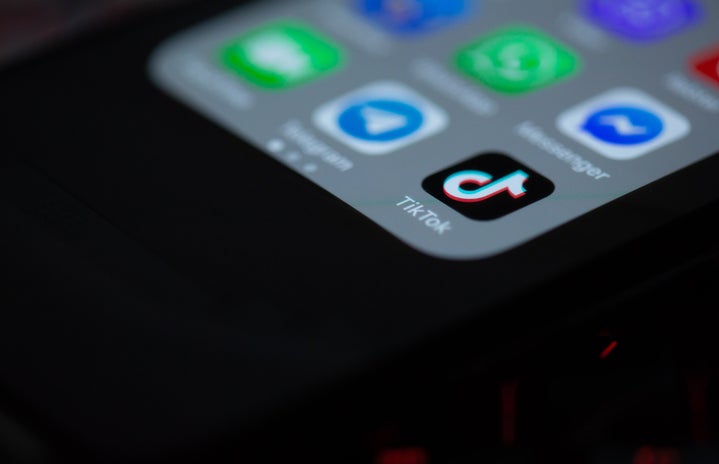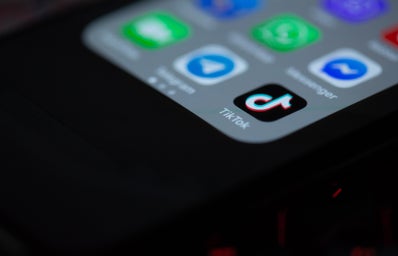By Jade Young
It was the fourth TikTok I had ever posted on an account that I had for over a year. The idea occurred to me because of a trend I was seeing everywhere, of people putting a distorting filter on their faces and being shocked when their features (predominantly slim, pixie-like under the sound) resurfaced. The effect of removing the “before” filter was called the “pretty filter,” despite there being no filter attached.
I had seen a few eloquent video critiques of the “before” and “ugly” filter on my For You Page, with people sharing disappointment when they felt their faces or features looked the same before and after. Some of which pointed out the uncomfortable similarities of the “before” filter and POC features. I digested this and it occurred to me to make a video lightly poking fun at the trend, which glorified some types of faces as worthy of looking like a “pretty filter” and relegated (often stereotypically POC ones) as the “before” shot. At this time I only had around 19 followers, all of whom were my close, personal friends in real life. I put very little thought into my word choice because my target audience consisted of people who understood my humor and my kindness, and would not misinterpret anything about my video.
I made the TikTok in the afternoon and later checked the account in the evening. It had three likes and two comments from my friends who found it hilarious and relevant. Not a bad ratio for a girl with fewer followers than classmates in my econ lecture! I got my burst of serotonin and went to bed satisfied.
Then I woke up the next morning. I had 20,000 views, and not everyone was as glowing as my friends had been. It had ended up on the side of TikTok belonging to the people it was gently poking fun at/critiquing. I was getting an overwhelming amount of hate. Half the comments accused me of bullying pretty people or tearing down other girls, while the other half gave me flack for being too pretty or Eurocentric-looking (I’m mixed-race) to speak on this issue. I was addicted to reading every comment despite the feeling of my heart sinking and my stomach-turning. Eventually, the hate made me so overwhelmed and anxious that I started physically shaking. I couldn’t stop and had to shut my phone down in an effort to calm myself.
I couldn’t relax for most of the day because I was so fixated on the negativity that I was receiving. People had started to attack my looks and personality, zeroing in on flaws I was no stranger to and parading them in the comments like a sick trophy of put-down. I was about to delete it when the TikTok algorithm recalibrated and put me on the right side of TikTok. Comments came flooding in from women who felt seen with the point I’d made; other women of color especially related. Hundreds of thousands of views trickled in, this time depositing a much higher ratio of positive comments and people claiming the trend made them feel terrible about themselves, but this video restored some measure of their self-confidence–that the trend was the one at fault, not their looks. My body stopped its uncontrollable shaking, and the people thanking me encouraged me to keep the video up.
Now it has over a million views. Hundreds of thousands of people have seen it and passed judgment on me–thousands of those people have chosen to comment their opinion. I don’t think of myself as an unkind person by any stretch, in person or online, but this experience reminded me to give more empathy and grace to creators who receive these torrents of hate on a regular basis and at much higher numbers. The internet can be comfortably anonymous, a place for people who choose to cyberbully with things they would never say in real life, and being on the receiving end of that for even a few days was more than enough for me.
It’s a little disturbing to see male creators make the same joke as me. I’m not at all claiming to own the sentiment (I was inspired by other creators myself), but what I’m jealous of is their comments. Their humor and insight are praised without people attacking their gender loyalty or looks. Could it be that women are held to a higher standard, or viewed as easier targets for online hate? Either way, my experience was a good reminder that the person on the other side of the screen is human too. I’m imperfect, I misphrase things or make jokes not everyone laughs at–that video is a prime example. I know I can’t be everyone’s favorite person (a fact my ESFP resents), but that doesn’t give people the right to tear me down. I’m trying to become more self-dependent on my own sense of self and remember that people on the internet shouldn’t define my worth, but in the meantime, we should all try to be a little kinder.


